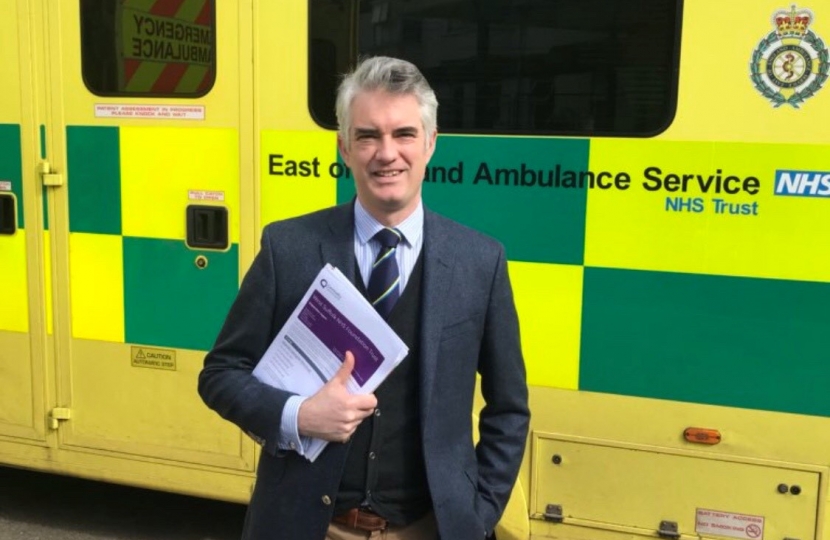
On Tuesday I received an email of historic proportions from the Speaker of the House of Commons, informing me that we were likely to meet as a ‘virtual Parliament’ next week. There have been many totemic moments already since Covid-19 hit our shores, underlining the outbreak’s profound impact on the core of our society, but myself and my colleagues debating – and maybe even voting – over the internet will justly be marked in future as a sign of the enforced change in routine we all face.
And yet, for all that we must adapt, the message itself has not changed. Quite simply, to avoid deaths and protect the NHS from being overwhelmed, we must continue to maximise social distance and minimise the spread of this terrible pathogen. We must all do our bit in a collective effort, to fulfil our national duty.
For most of us, that duty is simply to follow the scientific and health advice, and stay at home unless we have a very good reason to be out – such as buying essential groceries, or taking daily exercise. But for an amazing corps of people to whom we should all be grateful that duty entails putting themselves at greater risk in order to care for the sick, working potentially long hours under great stress for the NHS. These are the carers whom it has been my pleasure to clap for, along with the rest of my village, every Thursday at 8pm.
Of course, we in Government have a particular duty to those on our Coronavirus frontline, not least to ensure sufficient Personal Protective Equipment (PPE) is available. I know many people are concerned on this point, and I can assure readers that I am in frequent contact with local and regional stakeholders, both in the NHS and social care, to ascertain the situation on the ground and lend my voice in calling for national support where appropriate. I will continue to monitor progress on this issue.
In Government we also have a duty to do what we can to support the economy, and help businesses deal with the wider impact of this necessary shutdown. As the PPS to the Chancellor, I am particularly conscious of this pressing need to reassure people about the economic situation and take what action we can to directly support employers and their staff. In fact, the scale of support for the economy we have already set out is vast and unprecedented, with a great many workers expected to take advantage of the Job Retention Scheme, enabling them to be ‘furloughed’ till the economy bounces back – touch wood – instead of being made redundant.
But, we also have a duty to be transparent. Frankly, we cannot avoid everyone losing their job; we cannot create schemes to support literally everyone facing a drop in income or negative impact on their business due to the Coronavirus lockdown. Likewise, on the public health front, there will continue to be more tragic deaths resulting from the disease, and more families will suffer the loss that is the very outcome we are trying to minimise through this extraordinary suspension of ‘normal life’.
In these circumstances, it is understandable that debate is shifting to future questions such as ‘when will the lockdown end’? Unfortunately, it is too early to change position now. We must maintain the current tight restrictions until we have passed the peak of infection. Only then can we talk of the next steps. In the meantime, we therefore have to keep following the guidelines of staying home to save lives. That is a duty we all share.


